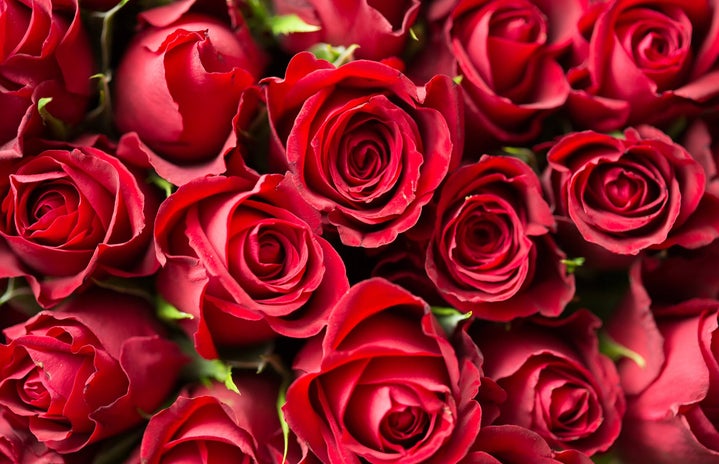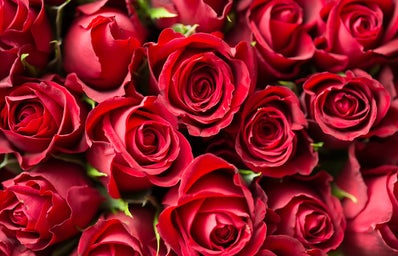When I tell people I’m a huge fan of The Bachelor franchise, I usually get one of two reactions. The first being surprise: “Jess, how can you like those shows? It’s trash reality TV” which, while I can gladly agree with that statement, does not mean there is no worth to be found out of watching any of its shows. The second being joy, because that person also watches one of the several shows that culminate into the entity of The Bachelor franchise meaning that we instantly have a million topics to talk about, debate and laugh over.
I remember the first time I was ever exposed to a season of any of The Bachelor shows. It was during bad a** attorney Rachel Lindsay’s season of The Bachelorette, who I did not know also happened to be the first Black bachelorette. Rachel’s season was one of my favorite seasons of all time because it dared to tell stories that were real. I had no idea that a season like Rachel Lindsay’s is an exception to the franchise, not the rule.
The shows that make up The Bachelor franchise are enjoyable to watch because they’re literally crafted by a team of producers and editors. Their job is to make a product that will leave its audience on the edge of their seats swooning over love stories and creating controversy that America will take sides on, fight about, post about and keep talking about to ensure the show stays relevant. However, it’s these choices regarding what the show chooses to depict and how these depictions are consistently presented that make the franchise inherently problematic.
One of my favorite Bachelor podcasts, “Chatty Broads,” (hosted by the iconic Jess Ambrose and Bekah Martinez who are unafraid to call out the show’s bulls***) explains it best in an episode collaborating with another Bachelor podcast, “Game of Roses.” Its host (known as Bachelor Clues) analyzes The Bachelor as if it’s a fantasy football league and facetiously calls Chris Harrison “the Dark Lord.” Clues asserts the importance of The Bachelor franchise in Chatty Broad’s episode by saying:
“We are in this modern era … This modern era is an exact reflection of American culture. I truly believe that The Bachelor is the most important piece of media being made by anyone in America right now because it so accurately reflects exactly what America is. A country that is run by a reality TV show host that is primarily focused on Instagram followers, the surface idea of what the country is while it ignores the toxic substance just under that shining surface.” (12:06)
The podcast goes on to explain how President Donald Trump has correlated his press conferences to The Bachelor, how the NFL is inextricably correlated to the franchise, and how the franchise overall reflects systemic and power dynamics that permeate American institutions and society today.
The show has essentially been built upon a misogynistic, whitewashed foundation. The contestants traditionally have almost all exclusively been white. When marginalized groups have been previously represented on the show, it has typically been through problematic depictions, less screen time than their white counterparts or through tokenism. The Christian faith also plays a significant role on the show, but I cannot recall ever hearing any other religions ever mentioned. Furthermore, there tends to be a severe lack of body inclusivity within the entire franchise.
This simply is not representative of America.
The average size of an American woman is now between 16 to 18. Having a cast of almost all exclusively skinny women on the show can promote toxic body image ideals when women in real life do not see themselves represented. I have never heard any discussions of a Jewish (besides previous lead from 2007 Jason Mesnick or winner of Ashley Herbert’s season J.P. Rosenbaum), Muslim, Hindu or any other religion contestant mentioned on the show for that matter. Only having one Black lead within 40seasons of a show with almost no other minority leads is not only problematic but inherently racist and biased.
These choices are intentionally made by producers and they contribute to the problematic systems of power that remain intact.
Bekah Martinez, a previous contestant from the 22nd season of The Bachelor and co-host of “Chatty Broads,” was even praised for being the first contestant in the show’s long history for rocking short hair. While Bekah is and was a breath of fresh air on the show (and is an absolute queen who calls the show’s problematic nature out), it simply illuminates how the portrayals of contestants, especially women, on The Bachelor and The Bachelorette have been so severely limited that someone having a short haircut can be seen as refreshing, new or “diverse.”
While the show has been making efforts to remedy its diversity issues, it has only been so under the intense pressure over the summer of 2020 demanding more diverse media representation. An Instagram and Twitter account called Bachelor Diversity was one of the accounts that spearheaded the push for diversity in the franchise and started a petition signed by more than 160,000 people to demand more representation on the show. This representation is not only limited within leads but contestants, producers and casting directors as well. The account also posted a powerful statement: “40 seasons. 18 years. 1 black lead.”
In response, ABC decided to cast it’s first Black bachelor, Matt James, whose season will be premiering Jan. 4, 2021. However, one might ask why The Bachelor did not cast fan favorite Mike Johnson for the role when they had the chance, instead opting for the tumultuous (to say the least) season of Peter Weber whose mom, Barb, became the main star.
This season of The Bachelorette, starring the second Black bachelorette in the franchise—Tayshia Adams—has taken steps in this direction. The show has hired a diversity consultant and the cast of this season is much more diverse than it has been in previous seasons. The audience has seen honest and raw discussions about the Black lives matter movement, men struggling with eating disorders and body image, as well as conversations about addiction and recovery.
These progressive steps cannot be the end when it is only the beginning. It is imperative to critique media that shows problematic representations, ask why and (if applicable) demand that more be done because a powerful franchise like The Bachelor can certainly afford to do more. Putting pressure on The Bachelor franchise, resulted in the franchise’s predominantly Southern, white fanbase getting to see an imperative conversation about how it feels to be black in America.
So why do I still watch these shows when they’re inherently problematic?
It’s because I believe that, while built upon a problematic foundation, these platforms can be shifted and utilized to showcase imperative representations and conversations that can change the American dialogue and empower its audience. The media directs the conversation and it also has the power to change it for the better or worse. I believe if its audience continues to hold the franchise accountable, to higher standards and continues to demand more, The Bachelor franchise can be one that holds a place in tearing down these structures of oppression rather than upholding them.
That is a rose I simply will accept any day.



